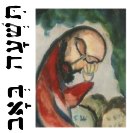|
|
|||||||||||||||||||||
 |
|||||||||||||||||||||
|
Learn Hebrew |
|||||||||||||||||||||
|
|
|
||||||||||||||||||||||||||||||||
|
|
|
|
Other Fast Days |
|||||||||
|
Besides the seven traditional fast days that are universally recognized within the observant Jewish community worldwide, there are some additional fast days within Jewish tradition that should be noted. These include:
|
|||||||||
|
Hebrew for Christians |
|||||||||
|
|||||||||
